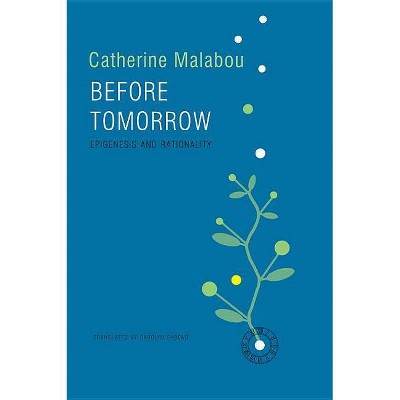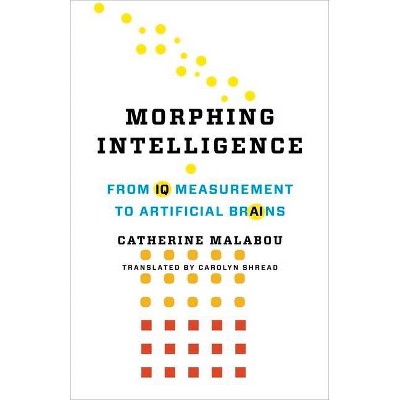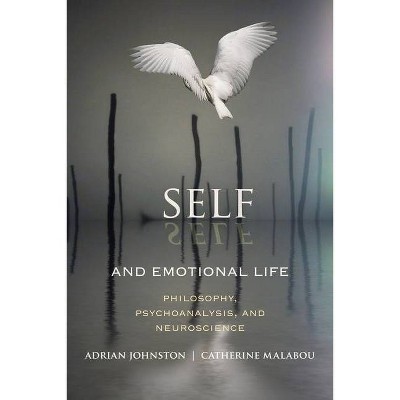Before Tomorrow - by Catherine Malabou (Paperback)

Similar Products
Products of same category from the store
AllProduct info
<p/><br></br><p><b> About the Book </b></p></br></br>Here, Malabou lays out Kant's response to his posterity. The book evolves as an epigenesis - the differentiated growth of an embryo - for, as those in critical philosophy affirm, this is the very life of the transcendental, containing the promise of its transformation.<p/><br></br><p><b> Book Synopsis </b></p></br></br>Is contemporary continental philosophy making a break with Kant? The structures of knowledge, taken for granted since KantÂs Critique of Pure Reason, are now being called into question: the finitude of the subject, the phenomenal given, a priori synthesis. Relinquish the transcendental: such is the imperative of postcritical thinking in the 21st century.<br /><br /> Questions that we no longer thought it possible to ask now reemerge with renewed vigor: can Kant really maintain the difference between a priori and innate? Can he deduce, rather than impose, the categories, or justify the necessity of nature? Recent research into brain development aggravates these suspicions, which measure transcendental idealism against the thesis of a biological origin for cognitive processes.<br /><br /> In her important new book Catherine Malabou lays out KantÂs response to his posterity. True to its subject, the book evolves as an epigenesis Â- the differentiated growth of the embryo Â- for, as those who know how to read critical philosophy affirm, this is the very life of the transcendental and contains the promise of its transformation.<p/><br></br><p><b> Review Quotes </b></p></br></br><br><p>"First the future of Hegel, now the future of Kant. And not just another Kant book, but an exploration that moves beyond Heidegger's temporalization of the transcendental, Meillassoux's critique of its contingency, and neurobiological hardwiring. Instead a new model of transcendental as an auto-transforming self-differential 'epigenesis' that Malabou finds nowhere else than in Kant himself! Another milestone in the unfolding philosophy of transformability and plasticity by Europe's most exciting philosopher."<br /> John D. Caputo, [Professor of Religion Emeritus] Syracuse University, [Professor of Philosophy Emeritus] Villanova University</p><p>"In <em>Before Tomorrow</em> Catherine Malabou takes us into the very heart of contemporary debates relating to the Kantian legacy, speculative realism and the relation of philosophy to scientific discourse. In demonstrating that the transcendental and the biological can and must be thought together Malabou's thinking heralds a new epigenetic paradigm and shows that contemporary realism is far from being done with Kant."<br /> Ian James, University of Cambridge</p><p>"Written with the crutchless clarity of one who knows what she is about, Malabou's new book is a stunning excavation of the process of epigenesis at the heart of Kant's conception of the transcendental. Refusing to join the ranks of those who would relinquish that speculative structure, Malabou mounts a convincing defense of it -- not by submitting it to a biologization, but by calling for a biology that would include speculative thinking. An extraordinary work of philosophy.<br /> Joan Copjec, Brown University</p><br><p/><br></br><p><b> About the Author </b></p></br></br><b>Catherine Malabou</b> is Professor of Philosophy at Kingston University London
Price History
Price Archive shows prices from various stores, lets you see history and find the cheapest. There is no actual sale on the website. For all support, inquiry and suggestion messagescommunication@pricearchive.us




















